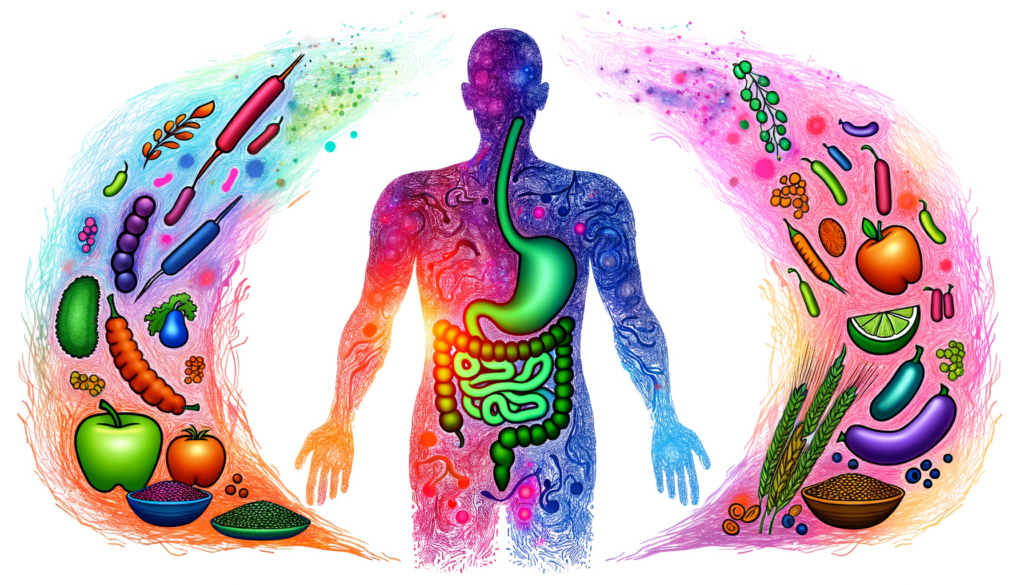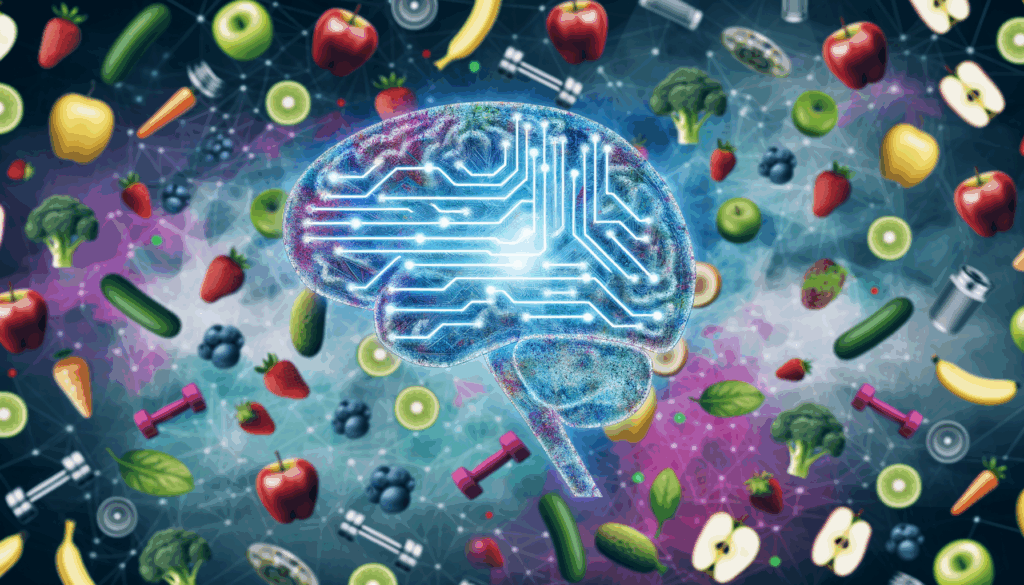Understanding the Interplay Between Nutrition and Mental Health
When it comes to mental health, the adage “you are what you eat” holds more truth than you might think. The connection between nutrition and mental health is complex but fundamentally important. Here, we will delve into the role of calorie balance, specific nutrients, and dietary patterns in regulating mood and overall mental well-being.
The Impact of Nutrient-Dense Foods on Mental Health
Consuming foods rich in nutrients such as vitamins, minerals, and antioxidants has a profound positive effect on brain function and mood. According to Jade Eaton, a Registered Dietician at Gundersen Health System, eating a well-balanced diet that includes plenty of healthy, nutrient-dense foods like fruits, vegetables, and whole grains helps in nourishing and fueling the body and brain.
These foods promote the growth of “good” bacteria in the gastrointestinal tract, which is often referred to as the “second brain” due to its close relationship with the brain. This gut-brain axis influences the production of chemical substances like dopamine and serotonin, which are crucial for mood regulation.
The Role of Calorie Balance in Mental Health
Caloric balance is a critical aspect of maintaining good mental health. Both caloric restriction and excessive calorie intake can have significant effects on mental well-being.
### Caloric Restriction and Mental Health
Studies have shown that caloric restriction, defined as the reduction in caloric intake without malnutrition, can have antidepressant-like effects. This approach has been linked to increased longevity, improved memory, and a reduced risk of neurodegenerative and psychiatric diseases, including depression. Caloric restriction enhances cerebral blood flow, promotes the survival of newly generated cells in the hippocampus, and activates neurotrophic factors like BDNF (Brain-Derived Neurotrophic Factor).
### The Risks of Poor Caloric Balance
On the other hand, a diet high in sugar and processed foods can lead to inflammation, which negatively affects mental health. These foods cause rapid increases and decreases in blood glucose levels, triggering the secretion of counter-regulatory hormones like cortisol, adrenaline, and glucagon. This can result in mood swings, anxiety, irritability, and hunger, ultimately contributing to mood disorders such as depression and anxiety.
Key Nutrients for Brain Health
Certain nutrients play a vital role in maintaining optimal brain function and mood.
### Fat and Mental Health
Despite its negative reputation, fat is essential for brain health. Moderate fat intake, around 65 grams per day, is necessary for maintaining the cell structure of the brain’s communication network. Sources of healthy fats include olive oil, coconut oil, avocados, fish, and nuts or nut butters. Low fat consumption has been associated with increased levels of depression.
### Protein and Amino Acids
Protein is composed of amino acids, which are the building blocks of neurotransmitters. These neurotransmitters are crucial for cell communication related to sleep, mood, and other functions. Including protein-rich foods in your diet helps in maintaining stable mood levels and overall mental health.
### Vitamin D and Magnesium
Vitamin D, often obtained through sunlight exposure, also plays a role in serotonin production. Foods like mushrooms are alternative sources of vitamin D. Magnesium, found in cacao nibs, almonds, cashews, spinach, and bananas, is vital for nerve and muscle function and helps in maintaining a steady heartbeat. Both vitamin D and magnesium deficiencies can lead to depression and anxiety-like symptoms.
Dietary Patterns and Mental Health
Specific dietary patterns have been linked to better mental health outcomes.
### The Mediterranean Diet
The Mediterranean diet, rich in fruits, vegetables, whole grains, and legumes, and low in red and processed meats, has been associated with a lower risk of depressive symptoms. Studies have shown that adhering to this diet can reduce measurements of depression in experimental study groups.
### Avoiding Refined Carbohydrates
Diets with a high glycaemic index and load, characterized by high amounts of refined carbohydrates and sugars, can have detrimental effects on mental health. These diets lead to rapid increases and decreases in blood glucose levels, which can trigger the secretion of stress hormones and contribute to mood disorders.
Practical Tips for Improving Mental Health Through Nutrition
Here are some actionable tips to help you improve your mental health through better nutrition:
### Eat Consistently Throughout the Day
Eating healthy meals at regular intervals helps in maintaining stable blood sugar levels and preventing mood swings. Aim to eat a balanced breakfast and continue to eat roughly every 3-5 hours thereafter.
### Incorporate Fermented Foods
Fermented foods, such as yogurt, kimchi, and sauerkraut, are rich in probiotics that support gut health. A healthy gut microbiome is essential for optimal brain function and mood regulation.
### Be Mindful of Your Diet
Being present and mindful while eating can help in making healthier food choices. Pay attention to how your food smells, tastes, and feels, and note how different foods make you feel afterward.
Conclusion and Next Steps
The relationship between nutrition and mental health is clear: a well-balanced, nutrient-dense diet is crucial for maintaining good mental health. By focusing on whole, unprocessed foods, avoiding refined carbohydrates, and ensuring adequate intake of essential nutrients, you can significantly improve your mood and overall mental well-being.
If you are looking to make changes to your diet to support your mental health, consider consulting resources like Calorie Calculator Cloud to help you plan and track your nutritional intake. For more detailed guidance, you can explore Calorie Calculator Plans tailored to your specific needs.
Remember, small changes today can lead to significant improvements in your mental health over time. Start your journey towards a healthier, happier you by making informed dietary choices.








